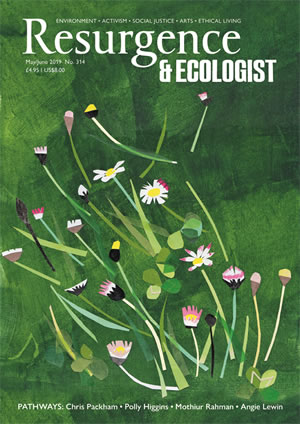It has been easy in recent months, in the UK at least, to be so wholly consumed by the vagaries of Brexit as to risk losing sight of the wider world. Indeed, one of the most potent criticisms has been the ‘opportunity cost’ argument: how much more fruitful would it have been if these past few years had been spent addressing the state of the NHS or the root causes of the grievances that led to the EU referendum, rather than the impossibilities of the negotiations and the parliamentary arithmetic? The same argument surely applies in the international context: at this time of pressing global challenges – from migration to climate change, humanitarian crisis to political instability, rising authoritarianism and xenophobia to environmental depletion – would it not have been so much more responsible for the UK, at the heart of the EU, to turn its sights more fully to the world, and to focus on playing the best role it could in making that world better, safer, fairer and more sustainable?
Two recent books serve as potent reminders of the scale of the global challenges at hand, and as healthy correctives to our apparent tendency here to wish to draw inwards and seek (in a futile way) to pull up the drawbridge to the world at large. The first is Daniel Gardner’s eloquent, objective, well-researched and compelling account of environmental pollution in China. It is hard not to conclude from this gripping if often sobering book that the planet’s future rests to a significant degree on the extent to which Xi Jinping’s concept of an ‘ecological civilisation’ can be turned from vision to reality. Whether in terms of greenhouse gas emissions, air, soil and water pollution, plastic and chemical waste, coal production and consumption, global deforestation or China’s changing diet, the country’s footprint is colossal and growing. And we all of course bear some of the responsibility: much of this environmental impact is attributable to China’s role as a ‘factory to the world’, producing so many of the materials and consumer goods we take for granted in the west.
Gardner’s book is not emotive, but rather it leaves its inexorable setting-out of the facts to speak for themselves. It does however provide an insight into the emotions and currents of feeling sweeping through contemporary China on environmental issues, including a powerful account of the 2015 documentary on air pollution, Under the Dome, which was seen by more than 200 million people within a week of its appearance on social media (before being summarily taken down). Each week, brave souls across the land speak out vociferously against pollution of all forms, often leading to an immediate response from local and national government. Gardner, a professor of history at Smith College, Massachusetts, also gives an insightful historical perspective: we learn that the Zhou dynasty (ca.1045–221 BCE) was “a civilization based on deforestation”, and that verses in the Confucian Book of Poetry seem to rejoice in the clearing of grass and trees as “ploughs open up the ground” (although the Confucian philosopher Mencius in the 4th century BCE was among the first to bemoan the impact of deforestation on the natural world). The book’s epilogue concludes with a measured assessment of the evolution of ‘ecological civilisation’ thinking, including the government’s call for a “civilization revolution” in favour of “a new model that takes account of the inherent value of the natural world, the reciprocal relationship between nature and humankind, and the obligation humankind has to preserve the planet’s resources for future generations”. We live in hope that such thinking will fast take root in China.
Whether or not the ‘ecological civilisation’ is a chimera, or heartfelt, will soon become apparent in how the Belt and Road Initiative, China’s signature geopolitical strategy, develops. Here, another historian, Peter Frankopan – author of the best-selling The Silk Roads: A New History of the World (2015) – gives prescient insights in his spirited, sweeping account of Belt and Road, The New Silk Roads, published in 2018. Early indications are not encouraging: the emblematic project has already caused ructions in a number of its 80 partner countries, whether through the expansion of coal power in Pakistan or Sri Lanka, or the likely deforestation to be caused by investments in Indonesia and Malaysia. “New agreements seem to be put in place every day,” Frankopan writes: tunnels (including a proposed one under the Himalayas to link Kathmandu with Tibet – surely an ecological calamity in waiting, if it materialises), freight trains, ports and ‘dry ports’, airports, shipping channels, and gas and oil pipelines. Renewable energy and afforestation may have received some modest attention, but only as if an afterthought, amid a veritable sea of old-fashioned and highly polluting traditional forms of infrastructure. Fortunately, partner countries’ concerns and discontent appear to have been heard in Beijing, and a nascent International Coalition for Green Development on the Belt and Road, formed of Chinese and international experts, was recently established. There is still scope to correct the course.
Irrespective of the Belt and Road Initiative’s green credentials, Frankopan’s broader point is that the world has shifted on its axis. “Trying to slow down or stop that change is an illusion… the Silk Roads are rising. They will continue to do so. How they develop, evolve and change will shape the world of the future, for good and for bad. Because the Silk Roads have always done just that.”
The quest for a more sustainable world continues. All who have an interest in that world will need to follow developments in China particularly closely, and hope beyond hope that a truly ecological civilisation can be achieved, fast, both within China and across the world on which it is set to have such a dramatic impact.






